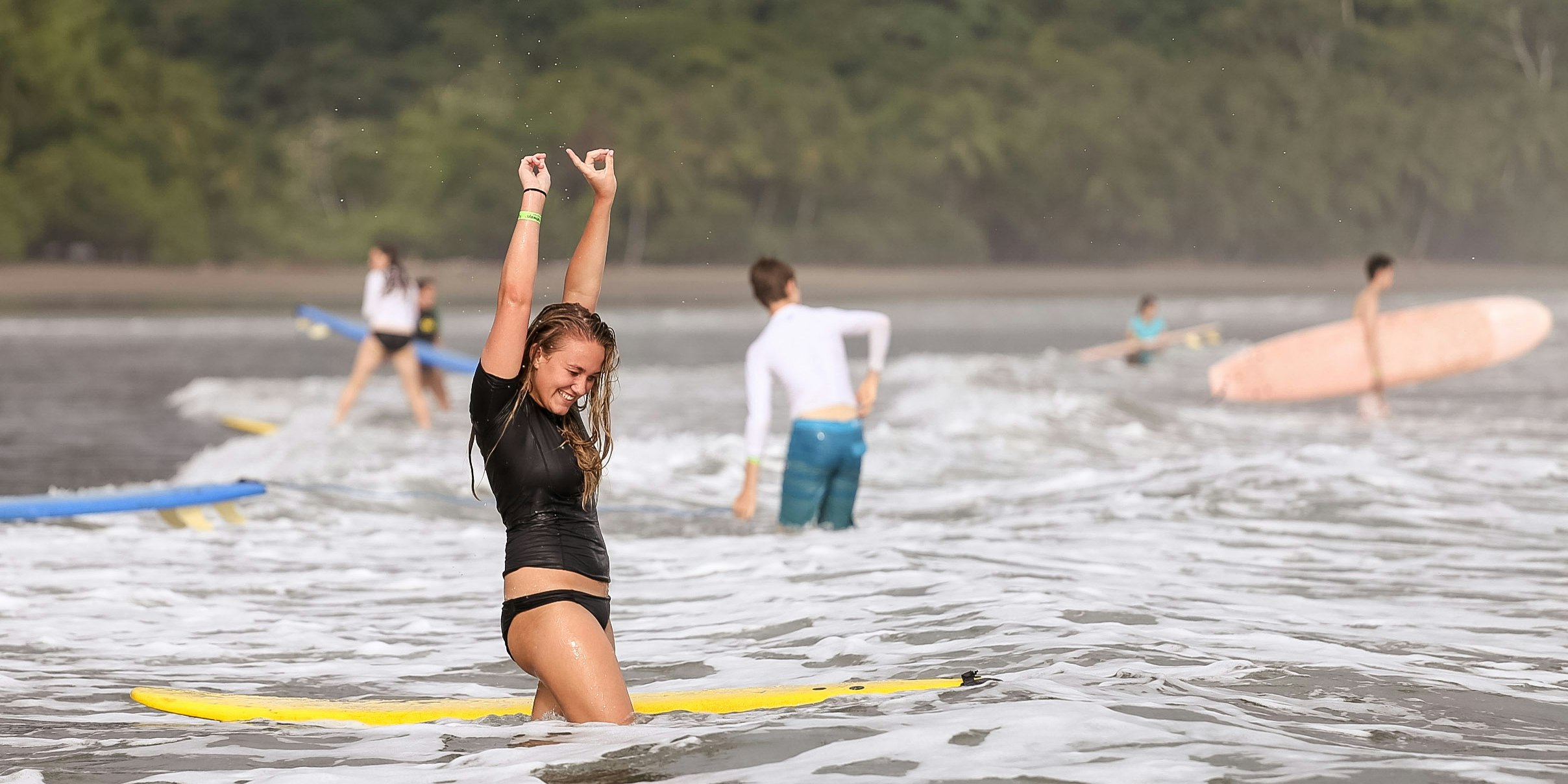Accommodations
Throughout the program, students stay in comfortable accommodations selected for their safety and connection to the local environment. Housing varies by session, but it typically includes shared rooms in group lodges, eco-lodges, or small hotels.
One example of an accommodation we commonly use is a surf bungalow near Playa Avellanas on the Nicoya Peninsula, just a short walk from the beach. It features shared bedrooms, Western-style bathrooms, and communal spaces such as a dining area, pool, and hammocks where students can relax.
Before heading to the main program location, students spend their first night in a hotel in San Jose. These hotels, typically located near the airport, serve as a hub for multiple Rustic Pathways programs, offering students the opportunity to meet others traveling on different itineraries.



